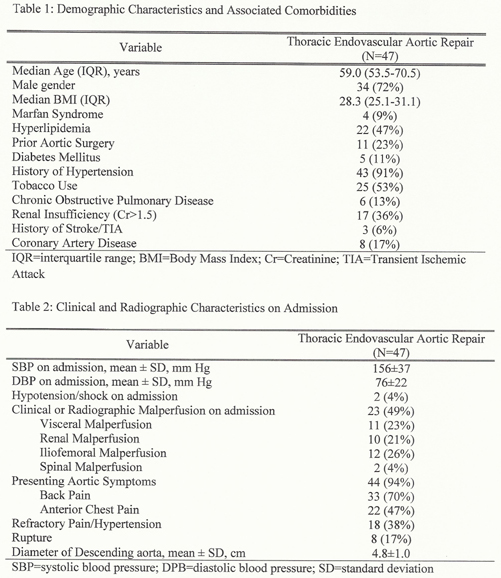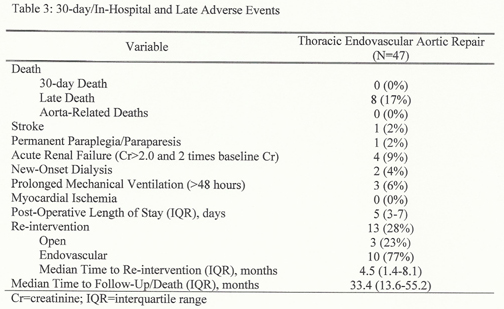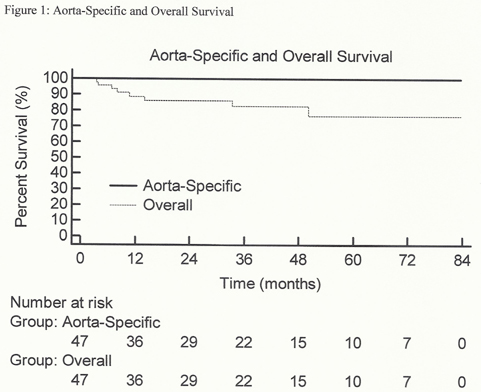Back to Annual Meeting Program
Long-Term Results for Endovascular Repair of Acute Complicated Type B Aortic Dissection
Jennifer M Hanna, Asvin Ganapathi, Nicholas Andersen, Richard L. McCann, G. Chad Hughes
Duke University Medical Center, Durham, NC
Background: Despite the lack of current U.S. Food and Drug Administration approval for management of acute complicated type B aortic dissection, thoracic endovascular aortic repair (TEVAR) has replaced open surgical management for this indication due to promising short- and mid-term safety and efficacy. However, because of the relatively recent adoption of this technology, long-term results with a view towards durability and requirement for secondary procedures are limited. As such, the objective of this study is to report long-term outcomes of TEVAR for acute (≤2 weeks from symptom onset) complicated type B dissection.
Methods: Between July 2005 and June 2012, 47 patients underwent TEVAR for the management of acute complicated type B dissection at a single referral institution (Table 1). Indications for intervention included rupture in 8 (17%), malperfusion in 23 (49%), and/or refractory pain or hypertension in 18 (38%) (Table 2). Fisher’s exact T-test was used to compare continuous variables and chi-squared test was used to compare categorical variables. A Kaplan-Meier analysis with a logrank test was used to compare aortic versus overall survival.
Results: Primary technical success was 100%. In-hospital/30-day rates of death, stroke, permanent paraplegia/paraperesis, and new dialysis were 0%, 2% (n = 1), 2% (n = 1), and 4% (n = 2), respectively. Overall survival was 83% at 84 months, with none of the late deaths attributable to the aortic pathology (Figure 1). The composite re-intervention rate related to index procedure was 28% (n = 13). Median time to re-intervention was 4.5 months (IQR, 1.4-8.1 months) (Table 3).
Conclusions: In the largest reported series with the longest follow-up to date, the current results confirm the excellent short-term outcomes of TEVAR for acute complicated type B dissection and further demonstrate that these results are durable over the long-term as well. The data support the continued use of TEVAR for acute complicated type B aortic dissection.



Back to Annual Meeting Program

